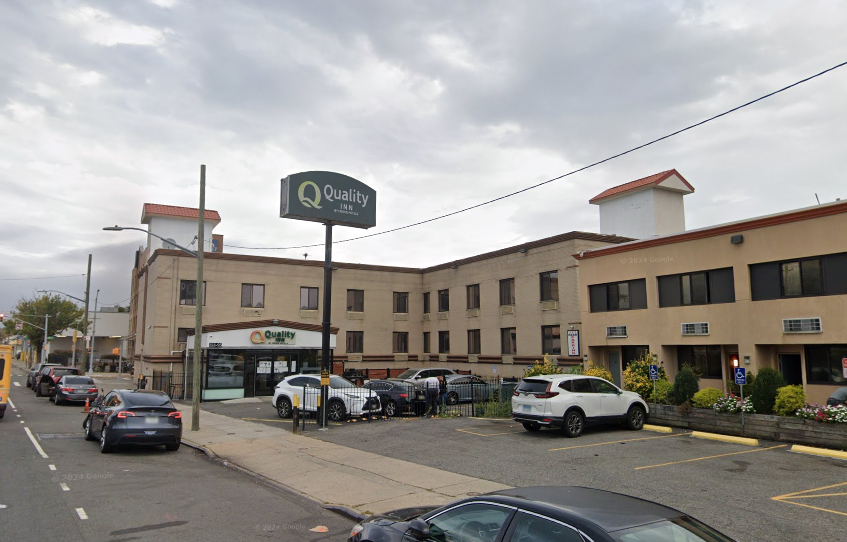By Keith Crandell
First, let me make it clear that I am capable of rage at criminals who brutalize me or my family. My wife Annie and I have each been battered by thugs. And most cruelly, my son Nat died from the aftermath of an assault by a drunk driver. I can share the agony of the families of the men who died in the Brink’s robbery in Rockland County more then 20 years ago, for which Kathy Boudin was imprisoned, and for the pain of the family of the victim of the drug-related robbery for which James Davis is still in prison.
Nonetheless, I am relieved that Kathy Boudin is out of jail after all those years. Her late mother, Jean Boudin, whom I knew during her last years, through a friend of a friend, was steadfast in her love for her daughter. Jean was a regular traveler from her home in the West Village to the Bedford Hills Correctional Facility, where her daughter spent more than 20 years.
One evening after dinner at the old Anglers and Writers restaurant on Hudson St., she invited my wife and me to her nearby home to see her daughter’s article on literacy training published in a Harvard professional journal.
Jean was proud of the way her daughter had used her time during her years in prison, She did not live to see her daughter released from prison after 22 years behind bars. She did, however, live to see her daughter’s fellow prisoners better off for having Kathy as a prison mate. When and if the gods of parole shine on them, they will walk out the better for having known her. At 60 years of age, Kathy is free, although on parole forever, and able to continue her work on behalf of people less fortunate than she is.
Just as it released Kathy Boudin, the state parole board ought to free James Davis. The parallel between Boudin and Davis is striking. Each was convicted of involvement in a crime of theft in which a fatal shooting took place. Neither carried a gun. Neither fired a shot. Yet each has served many years behind bars. Boudin 22 years, Davis 18 years. And Davis wasn’t even present at the shooting; he’d already fled.
Both Boudin and Davis have benefited from their time in prison. But both have spent more time behind bars than necessary if the goal is to assure that they will never again be involved in violent crime — even tangentially. (Of course, if the purpose of their incarceration is to wreak vengeance, to salve our pain, to vent our rage, then they would never earn freedom.)
The Boudin case is well known. Kathy Boudin’s father, Leonard Boudin, was a prominent lawyer (Rabinowitz and Boudin) and her family was well able to provide a first-rate legal support for her trial and for her parole application. She is a graduate of good private schools and Bryn Mawr.
James Davis’s father was a heroin addict who spent years in prison and who influenced James to drop out of public school in Brooklyn in the ninth grade. In prison, James has earned a bachelor of science degree from Shaw University, part of the North Carolina educational system, and a certificate in ministry and human services from the New York Theological Seminary. Last year he wrote to my longtime friend, Frank Irwin, that “There were a lot of negative things that happened to me as a child, but I must admit the choice to do wrong was my reaction and responsibility.”
Davis describes himself as “strung out on drugs” on his arrival in prison as a teenager. His life since then is described in the thick file of letters and documents that he has sent to Irwin from the Otisville (N.Y.) Correctional Facility.
I read Jim Davis’s carefully printed letters. They are literate, sometimes moving letters written small, as if paper were precious. He is hopeful for parole. He is hopeful to see his mother, Nadine, who has a brain tumor. (“Her situation has me stressed out,” he writes.) He is frank about his errors in prison (two instances of contraband in his cell — once 11 years ago, marijuana; once five years ago, hamburger buns — and two instances of fighting, the most recent five years ago).
In the thick file are letters urging parole from Otisville staff people, from ministers and even from the judge who sentenced him so many years ago. His mentors certify that he has spent years in ministering to his fellow prisoners.
He has completed courses in printing, in computer use, in food service, in foundry casting, in chaplain services, in floor covering, in roofing, in carpentry and even in fine arts.
He lectures to his fellow prisoners on anger management and AIDS/H.I.V. prevention. He is a certified drug counselor. He’s cleared to go outside the prison to do utility work. One staff member wrote to the state Division of Parole: “Mr. Davis and I have had many conversations…. Each time we speak, I am more and more convinced that he has what it takes to make a successful reentry back into society…. Over the years I have seen many men leave prison. Mr. Davis is one of the men that I see NOT returning to prison ever again.”
Last year, James Davis’s application for parole was rejected, just as Kathy Boudin‘s was on her first try. He comes up for parole again in January. He has labored and labored and labored to become a better person — gaining new skills, beating drugs, achieving self-control. He notes in one of his letters that “the consensus is that we are ‘throwaway people,’” a designation he refuses to accept. He writes, “I have changed my life around so I can be an asset to society.
“There are many men who deserve their freedom. We all made bad choices. I am not yet finished in my transformation because I have to be free to touch and effect change in my community,” says Davis.
Kathy Boudin will work at St. Luke’s Hospital in its AIDS-treatment program, most worthy work. James Davis ought to be free to work right alongside her.
He is not a “throwaway.”

































